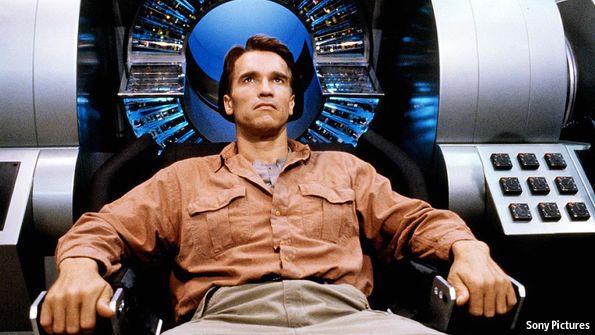EVER since ENIAC, the first computer that could be operated by a single person, began flashing its ring counters in 1946, human beings and calculating machines have been on a steady march towards tighter integration. Computers entered homes in the 1980s, then migrated onto laps, into pockets and around wrists. In the laboratory, computation has found its way onto molars and into eyeballs. The logical conclusion of all this is that computers will, one day, enter the brain.
This, at least, is the bet behind a company called Neuralink, just started by Elon Musk, a serial technological entrepreneur. Information about Neuralink is sparse, but trademark filings state that it will make invasive devices for treating or diagnosing neurological ailments. Mr Musk clearly has bigger plans, though. He has often tweeted cryptic messages referring to “neural lace”, a science-fictional concept invented by Iain M. Banks, a novelist, that is, in essence, a machine interface woven into the brain.

Digital Human Computer Interface requires a language called #VisualBinary. For humans, it also needs, to be straightforward and intuitive, not conceptual, something you can hold in your hand and feel. As a developer, I have been privileged to develop an interface tool called #FriendshipCube. The point of time-reference isn’t necessarily the future. I mean, it could be pre-historic. People will decide that it is “true” when we realize that we can feel the symbols, that they sound the way they look, and that they have applications for interacting with global humanity and pushing our potential. I would like to emphasize here that #FriendshipCube is for mind-over-machine applications. And it can be used with non-invasive neural sensors like the Emotiv EPOC neuro-headset. Because of the correlation between light and sound, or geometry and phonetics, and the intelligent use of the visual binary code, #FriendshipCube has an exponentially increasing number of applications.